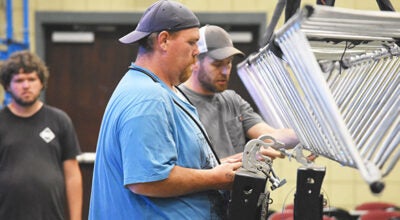VICKSBURG FACTS: The rise and fall of Sunday Laws in Vicksburg
Published 9:00 am Friday, July 1, 2022
Did you know that at one point, Vicksburg followed strictly enforced Sunday Laws?
Sunday Laws, also known as Blue Laws, were a “state or local law that prohibits commercial activities” on Sundays, according to Law and Legal Reference Library.
Sunday Laws stopped people from being able to buy, sell or provide public entertainment and sports on the Sabbath day. However, some businesses and occupations were exempt from these rules, such as doctors and railroad stations.
According to Law and Legal Reference Library, the Sunday Laws were inspired by the Puritans and the need to have a religious-based government in the 1700s.
By 1850, the U.S. Supreme Court had to analyze what is necessary for the Sunday Laws. As seen in the court case Philadelphia, Wilmington, and Baltimore Railroad Co. v. Philadelphia and Havre de Grace Steam Towboat Co., 64 U.S. (23 How.) 209 (1859) where the Supreme Court ruled that boats are necessary and are not bound to the Sunday Laws.
By the 1900s, some areas tried to reinforce the original standards of the Sunday Laws, like Vicksburg. In the July 1, 1922, edition of the Vicksburg Evening Post, an announcement was made that any person that “labors at his own or any other trade, calling or business, or shall employ his servants or apprentices in labor or other business, except it be in the ordinary households offices of daily necessity or charity” on Sundays would be convicted and fined not more than $20 for every offense.
As stated by Dr. Ayers in the Vicksburg Evening Post in July 1922, the Sunday Laws were supposed to help stop prostitution, gambling and unlawful cohabitation in the city.
Those exempt from the rules in Vicksburg were the railroad, steamboats, apothecaries and “druggists who sell medicine,” newsstands, hotels, restaurants, street cars and grocery stores, to name a few examples.
The rules were enforced, and on July 3, 1922, the Vicksburg Evening Post published the city’s first three offenders: Loi Lun, a Chinese Merchant; Nick Bordon, a Marcus Bottom storekeeper; and Albert Murphy, a shoe shiner at the Carroll Barbershop; were all convicted for operating their businesses on Sunday.
Quickly, the citizens of Vicksburg were not happy with this enforcement. Many complaints were made about how Sunday’s rest could also mean a change in activity such as swimming, various outdoor activities and going out to eat, and not just a day of physically sitting and reflecting.
Eventually, a mass meeting was held, with city and county officials in attendance. The result of the meeting ended on a happy note, as stated in the July 21, 1922, Vicksburg Evening Post.
The meeting resulted in an agreement to be lenient with the Sunday Laws and focus on businesses that sold alcohol and tobacco.






